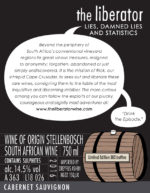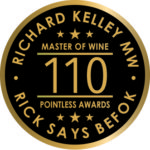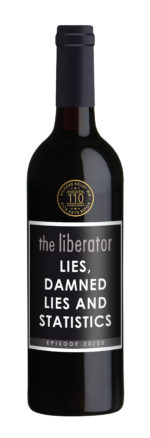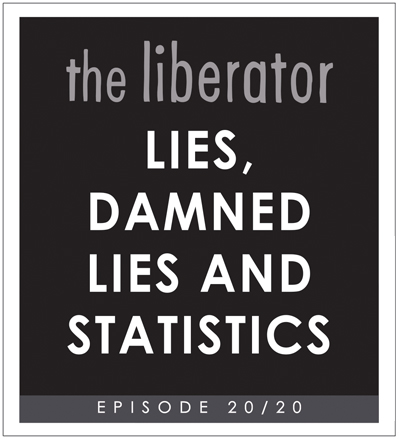Episode 20 – Lies, Damned Lies and Statistics
Technical Information:
| Producer: | Vergelegen |
| The Wine: | 90% Cabernet Sauvignon 10% Merlot |
| Vintage: | 2016 |
| Wine of Origin: | Stellenbosch |
| Alcohol: | 14.5% |
| Bottles: | 300 bottles |
 “There are three kinds of lies; lies, damned lies, and statistics.”
“There are three kinds of lies; lies, damned lies, and statistics.”
The phrase popularised by Mark Twain and attributed to British Prime Minister, Benjamin Disraeli. It best describes the persuasive power of numbers and how it can be applied to manipulate and bolster weak arguments. It also reflects, perfectly, the ongoing debate on the merits of applying a score, whether it be on a 20 or a 100-point system, over the use of words, to evaluate wine.
What follows, is the world, according to Rick.
Wine competitions are for those producers and importers who either lack confidence or need reassurance for their efforts. They are, however, a lottery where panel opinions differ greatly, and consensus is rarely consistent. Whether it be a Gold, Silver or Bronze, it’s nothing more than wine tasting by committee, where the only real winner is the organisers who charge heavily for inclusion. It’s a case of ‘pay to play’. Of course, as a producer or importer, statistics suggest that the more wines you throw into the ring, the more medals you will win.
In contrast, individual critics thrive on the numbers game, where awarding a wine 20/20 or 100 points is as likely to raise the wine writer’s own profile, as much as it is the producer or wine in question. Remember, this is one man’s (or woman’s) opinion, which is fair enough, should you rate that critic’s tasting ability. Their view, however, should never be considered definitive.
When it comes to ratings and awards, Rick prefers to trust his own judgement, rather than that of others.
In satisfying the real interests of the producer, Rick’s experience is that money in the bank tends to hold more currency than some arbitrary number slapped on the bottle by some self-appointed critic.
So, with the above in mind, Rick has invented his own cynical, systematic approach to tasting and point scoring. It’s called the ‘Marshall System’ and based on the infamous amplifiers that can be turned up ‘to eleven’…
For those unfamiliar with the cult ‘mockumetary’ This Is Spinal Tap, here is a brief introduction to the logic:
https://www.youtube.com/watch?v=hW008FcKr3Q
Rick’s Marshall System is very easy to use. Here’s a simple illustration as to how it works.
Critics are invited to take a cursory sniff, slurp and spit, then think of a random number between 90 and 110 (anything less than 90 points simply deems a wine worthless). The whole tasting and evaluation process should take no longer than ten seconds to perform, anything more should be considered time-wasting.
 Once the results are published, the critic can then issue an invoice to the producer for the honour of applying a self-adhesive sticker to each bottle. Clearly, the blatant inflation of the initial score is encouraged, since this acts as a further inducement to the winemaker to play the game. It’s simple. Money for nothing. Pure genius. Everyone’s a winner…
Once the results are published, the critic can then issue an invoice to the producer for the honour of applying a self-adhesive sticker to each bottle. Clearly, the blatant inflation of the initial score is encouraged, since this acts as a further inducement to the winemaker to play the game. It’s simple. Money for nothing. Pure genius. Everyone’s a winner…
Now, onto Episode 20 (or should that be Episode 20/20…?).
Based on Rick’s ‘Marshall System’, Lies, Damned Lies and Statistics has been awarded a maximum 110 points. Hardly surprising when one considers the wine was made by André Van Rensburg at Vergelegen, with the final blend agreed alongside international consultant, Michel Rolland. For those who know André well, we can all remain a little unsure at this stage as to who actually consults to who…
According to Rick (whose opinion is obviously, always definitive), Damned Lies corresponds to the best red wine ever made at Vergelegen. It’s rightly expensive and limited in its availability.
And so, we leave the last and final word to our brave Cape Crusader.
Rick says ‘Befok’…
Afrikaans lesson number #110:
Befok – It’s really quite good




